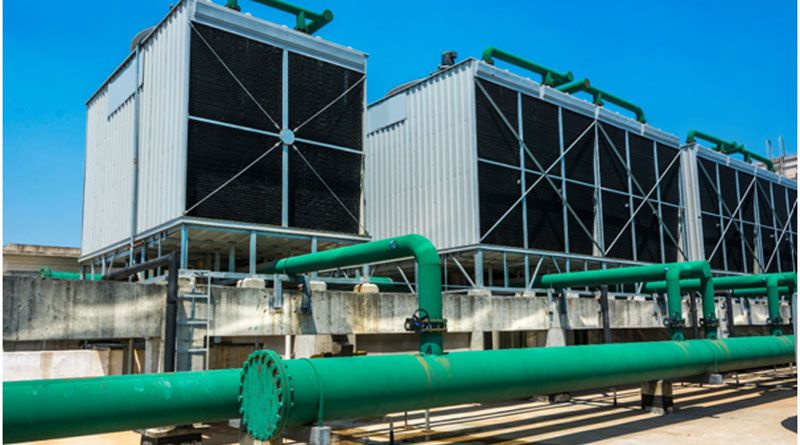Understanding the fundamentals of heating and cooling can save money on repairs. We will cover key terms, products, and maintenance schedules.
While it can be complicated, you must learn about HVAC systems and products such as ductwork, thermostats, and filters so your HVAC system runs optimally and efficiently. By understanding their basics, you will help ensure they operate in accordance with regulations.
Taking the time to grasp the basics of heating and cooling is a practical investment in your home’s efficiency; for expert furnace repair services, consider contacting an HVAC company that offers professional furnace repair in Wellington, CO.
1. What is an HVAC system?
HVAC systems serve a primary purpose: keeping building occupants comfortable by creating an optimal climate in terms of temperature, humidity, and air quality.
System components typically included are an air conditioner, heat pump or furnace, ducts, thermostat, blower, and thermostats. Furthermore, blowers may also be utilized to distribute air from units such as an AC and furnace throughout your home or business.
HVAC systems improve indoor air quality by replacing stale air with fresh, filtered air. Furthermore, they help regulate indoor humidity levels by taking humid, warm air out while sending dry, cool air in to avoid mold and mildew growth that could pose health hazards and structural damage over time.
2. What is an AFUE rating?
An AFUE rating measures the ratio between fuel consumed by your furnace and heat produced for your home. A furnace with an AFUE of 90 or higher will consume much less energy than its older counterpart with lower ratings.
While AFUE ratings indicate your furnace’s efficiency, they don’t account for the other root heat loss issues, such as leaky ducts, windows, or an underheated attic. Therefore, before investing in a new heating system, an in-home evaluation by a professional heating system installer must be conducted first.
Furnace manufacturers must display the annual fuel utilization efficiency (AFUE) ratings on the yellow EnergyGuide label on all appliances. You may also check manufacturer or retailer websites to get this information. However, be mindful that heating systems become less efficient over time, so printed AFUE ratings may no longer reflect reality.
3. What is a Zoning system?
An HVAC zoning system could be the ideal solution for homes with various temperature preferences or tall ceilings where heat rises and becomes trapped at the top. This system allows you to create distinct heating and cooling “zones” within your house that can each be controlled with its thermostat.
Zoning systems work for both duct-based and ductless heating/cooling systems. Their goal is to target heating or cooling to only those rooms (zones) that need it rather than waste energy by warming or cooling parts of your house that don’t.
Lower-floor and upper-floor areas often form their zones due to usage and temperature demands, with bedrooms often serving as individual zones due to being used at nighttime. Depending on its layout and personal preferences, a professional can help determine how many zones your home needs.
4. What is a thermostat?
A thermostat is a device used to read ambient temperature and activate fan and heating systems as needed. Most thermostats include an LCD display screen and multiple wires connected to blower fans, auxiliary heat systems, or two-stage heating/cooling systems.
Problems with your thermostat can cause your system to shut off unexpectedly or cycle unpredictably. If your thermostat has trouble maintaining a setting or regularly alters without warning, contact an HVAC technician as soon as possible for repairs or adjustment.
5. What is a filter?
Dirty air filters can become clogged quickly, forcing the blower fan to run more frequently and wear out faster.
To protect against this scenario, change out your furnace filter regularly and clean around vents. Clogged drain pipes may lead to leaks and mold growth; to stop this from occurring, regularly empty your drain pan while using degreasing products to dissolve dirt accumulation in pipes.
6. What is a leak?
Leaks in HVAC can be an immense hassle. Not only can they lead to significant damage, but repairing them may prove impossible. To minimize leaks altogether and protect against potential future problems, having your HVAC system professionally inspected annually by a certified inspector will allow for early identification of any potential issues before they turn into major ones.

Namaste UI collaborates closely with clients to develop tailored guest posting strategies that align with their unique goals and target audiences. Their commitment to delivering high-quality, niche-specific content ensures that each guest post not only meets but exceeds the expectations of both clients and the hosting platforms. Connect with us on social media for the latest updates on guest posting trends, outreach strategies, and digital marketing tips. For any types of guest posting services, contact us on info[at]namasteui.com.

